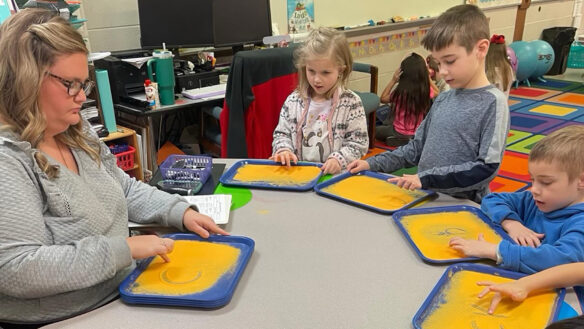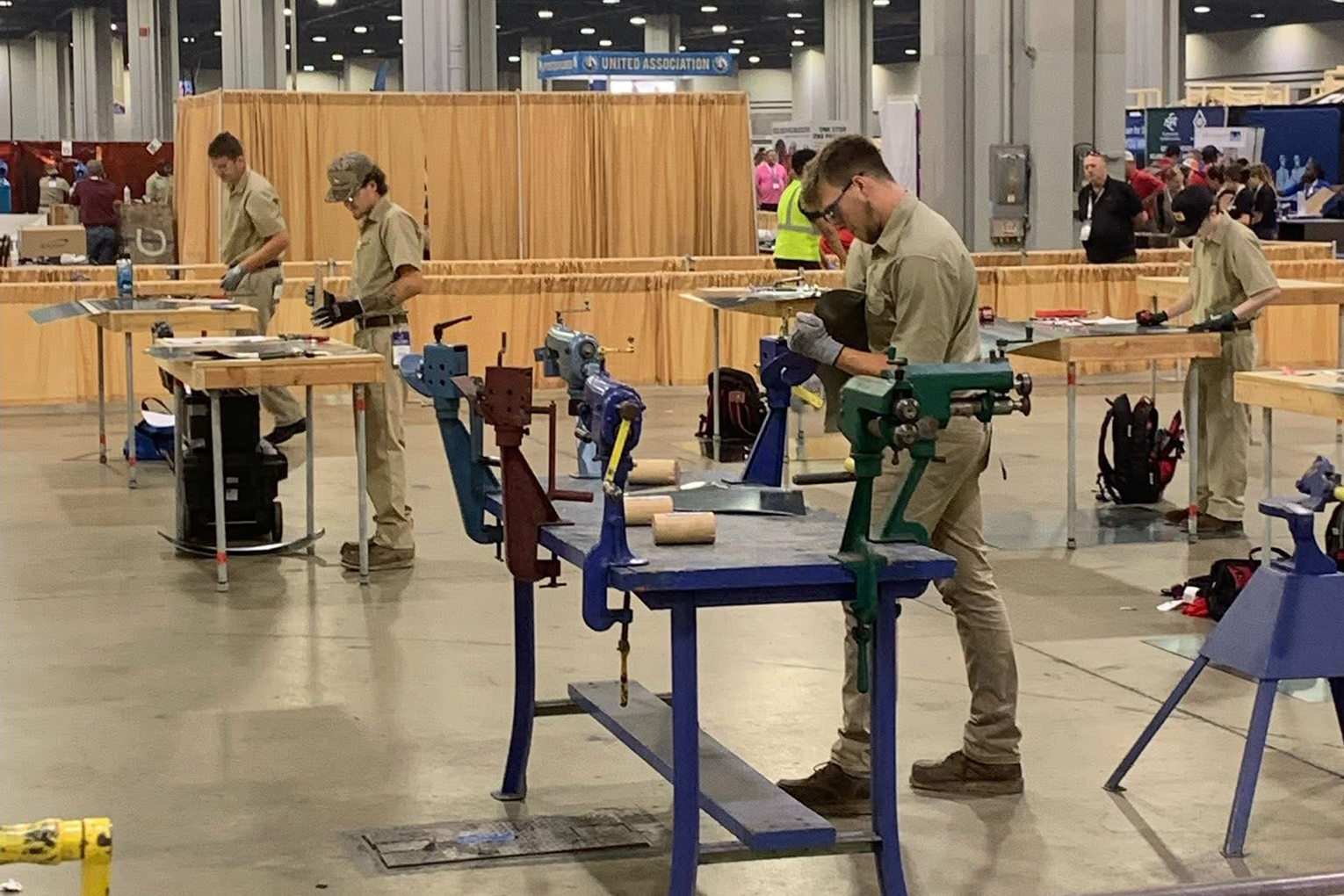
Graves County school leaders used the lessons learned in the Language Essentials for Teachers of Reading and Spelling (LETRS) training to guide the district’s vision on literacy. Submitted photo
When asked to talk about supports that impacted the Graves County school district’s literacy vision, Superintendent Matt Madding said the Language Essentials for Teachers of Reading and Spelling (LETRS) through the Kentucky Reading Academies played a crucial role in the process the district went through over the past year while selecting curriculum for elementary students.
“We wanted a curriculum that was tied to the Science of Reading, not just common practice, but analytics,” said Madding. “We wanted data behind the curriculum, that it was proven to work.”
In addition to supporting the district’s selection of a high-quality instructional resource (HQIR), Madding went on to explain how they “weren’t just doing LETRS because it exists, but because it was one of the legs of the long-term literacy plan that [they] had.”
In 2022, what started as a belief in the importance of investing in professional learning for elementary staff quickly ignited excitement and revamp of instruction across the district when an invitation was given to participate in LETRS. Due to the two-year course participation commitment, requirements asked of teachers, and complex learning experience required to become a skilled reading instructor, the district provided a $1,200 stipend for all teachers who chose to participate.
“We see value in LETRS, and because we see the value, we allocated money. We wanted to compensate teachers for the time and effort for their participation LETRS would require,” said Madding. “We talked to lead teachers about how much time is involved to figure out the appropriate stipend amount. It is above and beyond, so we wanted them to be compensated, but there is so much value in the work.
“Teachers are even telling other teachers, ‘LETRS is great. I wish I had this my first year.’ Teachers are advocating for it,” he said.
Currently, the district has teachers and administrators participating in the first and second cohorts of LETRS for Educators and LETRS for Administrators as part of the Kentucky Reading Academies. To support these cohorts, the district created LETRS debrief sessions to allow teachers and administrators to come together to review unit content and discuss how the content could be utilized to impact student learning. Through the debrief sessions, teachers began recognizing common areas their students were struggling that had not been recognized before and started addressing the deficiencies by implementing the evidence-based strategies they learned during LETRS training.
Educators in Graves County understand the importance of shifting to an approach that explicitly and systematically delivers the content students need to become proficient readers and writers.
“The debrief sessions were time to reflect on our current practices as a classroom teacher, as a school and also as a district. It has been a valuable time to reflect on what we should no longer use and do and also what we need to continue doing more of,” said Amanda Henson, district supervisor of elementary instruction for Graves County. “With this knowledge, we have made adjustments to our reading pacing guides and will continue to do so. We desire all our students to be aligned throughout the district. The HQIR we will be adopting, along with trained teachers in LETRS has put everyone in alignment as we move forward.”
Additionally, many Graves County administrators were enrolled in LETRS for Administrators. Administrators were able to learn the importance of structured literacy through LETRS so that they could support the new ways of learning and teaching that would be occurring throughout their school.
During their training sessions, the administrators learned new ways to implement LETRS in their buildings, gained knowledge on how to host professional learning communities in their schools involving the LETRS work, and created a network of educators who have or are currently experiencing the implementation of a structured literacy curriculum.
Having school administrators who understand how the brain learns to read was the starting point for building buy-in and overall success. Graves County administrators were involved in the monthly HQIR meetings, LETRS debriefs at the district level, and the LETRS for Administrators debriefs.
Beginning in July 2023, the Graves County school district created a committee tasked with choosing an approved HQIR for K-3 literacy. Henson talked about the power of having LETRS trained teachers on the curriculum adoption committee.
“Having teachers that were LETRS trained on the committee was crucial for us in the adoption process. I wonder if we had teachers that hadn’t been LETRS trained, would they have had the approach of ‘this is what we have always done’ throughout the HQIR adoption process?” said Henson. “LETRS trained teachers convinced other teachers of the power of LETRS and the science and research behind their decisions. Lead teachers went through LETRS training first, and other teachers trusted them. They were powerful voices coming to the table. Those voices changed the approach throughout the committee and played an instrumental role in our HQIR adoption.”
Like other school systems, improving instruction for all students is the goal of Graves County leaders. The adoption of their HQIRs is one action they’ve taken toward aligning instruction across the elementary schools in the county, and, thus, one step closer to ensuring equitable instruction for all. They will also continue making sure all educators and administrators are LETRS trained. Next year, kindergarten through grade 2 teachers will participate in the third LETRS for Educators cohort as well as all special education teachers, English learner teachers, reading intervention teachers and administrators, if they are not already trained. Cohort debriefs will continue as well. With the systematic lenses and intentional sequences provided by LETRS and their HQIRs, Henson believes instruction is improving, specifically explicit instruction.
Stephanie Ellegood, a teacher with 24 years of experience in primary teaching, summed it up best.
“I think LETRS is an eye-opening experience that should be made available to all teachers,” she said. “It changes how teachers approach their planning and instruction. It enables teachers not only to identify student errors, but also to determine the causes of errors as well as approaches for correction and continued instruction. The time spent learning and growing through LETRS is absolutely worth it.”




Leave A Comment